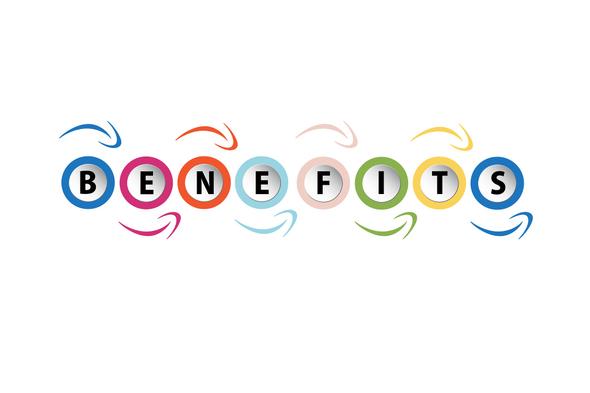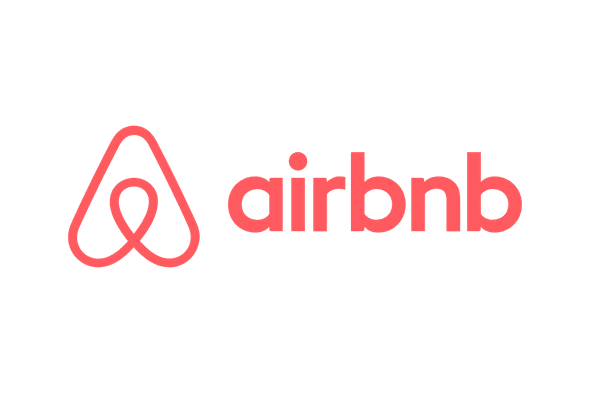How to Book Mid-Term Guests on Airbnb (MTR)

Key Takeaways
Mid-term rentals (1–12 months) sit between short-term and long-term stays, offering more stable income than nightly bookings and higher rates than traditional leases.
The strongest demand comes from specific guest segments like travel nurses, corporate travelers, students, relocating families and remote workers who need furnished, flexible housing.
MTRs reduce turnover and operational workload, with fewer cleanings, fewer guests and less day-to-day management compared to short-term rentals.
Optimizing your Airbnb listing is essential. Enabling longer stays, offering weekly and monthly discounts and highlighting work-friendly amenities directly improve mid-term bookings.
Mid-term rentals work best as a strategic complement, especially in seasonal or off-peak markets where short-term occupancy drops and calendar gaps can hurt revenue.
Most people associate rentals with short-term vacation rentals or long-term rentals. However, there is a middle segment of housing rentals that thousands of guests want, but are rarely mentioned, amidst the demand for general housing rental solutions.
Managing short-term rentals is hard work, especially during the offseason when bookings lag and you find it hard to fill your calendar, so if you are looking for a solution for when bookings start to drop, or simply if your Airbnb vacancy rate is too low due to low demand, renting it out mid-term might be a good option.
In this article, we will discuss everything you need to know about mid-term rentals and how to get started on Airbnb.
What are Mid-Term Rentals?
Typically, midterm rentals last between 1 and 12 months. However, they are more often 3 to 9 months. If a stay exceeds 12 months it is considered a long-term rental/lease. MTRs (medium-term rentals) are fully furnished properties with utilities included.
Rental rates for mid-term rentals are usually higher than those for long-term rentals and lower than those for short-term rentals.
How Do Mid-Term Rentals Differ From Short-Term Rentals?
Generally, short-term rentals are when you rent your home or space to guests for a short period of time, such as a week or weekend. They are mainly marketed to vacationers looking for a short-term stay. Occasionally, you may even come across guests who wish to stay for a few weeks but less than 30 days.
Target Market for Airbnb Mid-Term Rentals

In contrast to short-term rentals, mid-term rentals are targeted at an entirely different segment of occupants. The following demographics are most likely to rent a mid-term property:
Families relocating to a new city
In an ideal situation, a family moving to a new city would want to determine which neighbourhood best meets their needs and is comfortable for them. In this situation, a midterm rental is the best option before they commit to relocating long-term.
Students/interns
It is common for university students to receive internship offers outside their local area and to need to find a place to stay for 3-4 months, which will need to be fully furnished for the time they will spend in the city. Budget-conscious students are often on the lookout for modest accommodations.
Travel nurses/medical professionals
Zippia estimates that there are over 1,696,386 travelling nurses currently employed in the United States. Women make up 84.1% of travelling nurses while men make up 15.9%.
Travel nurses have specific housing requirements. They are commonly assigned brief assignments that last between 2-3 months and are oftentimes required to travel to foreign cities, which require them to often find housing rentals for mid-term. Many times, this segment is budget conscious since they have to manage their accommodations with the housing stipend provided to them. It is common for travel nurses to look for midterm rentals or websites that cater specifically to the needs of travel nurses, such as Furnished Finder.
Corporate travellers
In order to accommodate travelling business employees, large corporations often rent out properties on a mid-term basis. Renting properties on this basis is easier than paying extra for hotels or short-term rentals.
Business travel is expected to grow at a CAGR of 13.2% from 2021 to 2028, according to Zippia. Estimates predict the industry will grow from $695.9 billion in 2020 to $2.1 billion by 2028
Remote workers/digital nomads
Statistics estimate that there are 35 million digital nomads worldwide with 15 million accounted for in the US alone. Digital Nomads are professionals who work remotely and enjoy working while on vacation. Due to the popularity of remote and distributed work, a significant number of digital nomads are looking for relatively long accommodations.
With the advent of the nomadic lifestyle, which allows these professionals to enjoy their work-cation, it is also vital for them to have a dedicated work environment to work at throughout their stay with adequate access to facilities while seeking accommodation.
Benefits of Airbnb Mid-Term Rentals (MTR)

A Mid-Term Rental investment strategy has many other advantages over Short Term Rentals. Advantages include:
While a short-term rental yields a higher nightly rate, it is accompanied by a lower occupancy rate during slow seasons. Mid-term rentals will provide you with a better yield in terms of monetary stability. Mid-term rental rates are often 50% higher than long-term rental rates
As market demand changes, you can set new rates with each tenant. Not only that, but you can scale your rates based on term length or use term length discounts strategically.
With a higher rent-paying tenant pool, you will attract a higher quality of tenants.
In contrast to a typical short-term rental, you will host fewer people, meaning less turnover and upkeep.
You can define the start and end dates of the rental agreement.
It is less likely that you will encounter bad guest behaviour because these guests will live on the property for a stipulated amount of time and tend to maintain it for the time of stay. They are mostly working, travelling, and returning to sleep at the property.
Less competition! Due to the lack of Mid term rentals, you will have your pick of tenants and be able to set your rates more freely.
Airbnb Mid-Term Rentals Disadvantages

While there are many reasons to jump on the mid-term rental bandwagon, there are a few things to keep in mind beforehand:
With a lower average nightly rate than a short-term rental, you may lose out on profits.
Furnishing your property will require a significant investment depending on the unit's size.
Considering that cleanings are less frequent, your furnishings may suffer more wear and tear. To compensate, it may be a good idea to schedule a monthly cleaning service. You can even build the charge into your rates.
How to List Your Property on Airbnb and Book Mid-Term Guests

Property managers who operate short-term rentals on Airbnb and are open to longer-term stays should make a few changes to their listings once they decide to open their properties to mid-term guests. Here’s how,
Enable Longer Stays
To ensure guests can book longer stays, review your availability settings:
Go to Listings and select a listing
Click or tap Availability
Go to Trip details and remove your maximum trip setting, or adjust it up and choose to manually review longer stays (if you don’t see this option, follow these instructions to turn on Instant Book)
Click or tap to Save
Discounts on a weekly and monthly basis
The majority of guests who book longer stays actively look for listings that offer weekly or monthly discounts, which are highlighted in search results and on the listing page's price breakdown.
For longer reservations, set a weekly or monthly discount:
Go to Listings and select a listing
Click or tap Pricing
Go to Discounts and enter your weekly or monthly discount
Click or tap Save
Weekly and Monthly Discounts
Your weekly discount will apply to any reservation for 7-27 nights.
Your monthly discount will apply to any reservation for 28 nights or longer.
How to Set your Discount Amount
You'll be able to check if the average price for weekly and monthly stays matches the income you expect when you set a weekly or monthly discount. Alternatively, you can set your monthly discount based on your expected vacancy percentage.
Optimising your Listing for Longer Stays
Other than allowing longer stays and offering weekly and monthly discounts, here are some other ways to make sure you are ready to accept more guests.
Additional Reservation Preferences
Review the additional settings in Calendar Availability, including:
Advance notice: How soon can guests book? Preparation time: Minimum time between bookings Availability window: How far into the future can guests book?
Airbnb Welcome Book
Providing Airbnb guests with a friendly welcome book will ensure they feel right at home and make their stay as comfortable as possible. In this book, you can provide guests with recommendations of where they should go sightseeing, eat, and do things around the area, coffee shops, eateries, bars etc, creating unforgettable experiences for them.
A welcome book should also include instructions for day-to-day living (such as garbage disposal, emergency contacts, noise control, thermostat, and cleaning schedule (if you have a cleaner allocated, etc).
Airbnb Amenities for Mid-Term Rentals
It is important to have the essential amenities for longer stays.
Guests looking for longer stays typically look for listings that provide the following
A well-equipped kitchen - (toaster/coffee maker, refrigerator, cooker, cutlery, cooking tools etc)
Laundry facilities (Washer / Dryer)
High-speed Wi-Fi
Dedicated Work Space
Secure door locks and safes
Contactless check-in and checkout options
Airbnb Payments for Mid-Term Rental
There is a different payout process for guests who stay longer than 28 days.
Airbnb collects 1 month upfront from guests and at the beginning of each 30-day period.
This first payment will then be released to the host within 24 hours after their scheduled check-in time
For the duration of the reservation, future payments are released to the host monthly, based on the check-in date
Hosts can check the status of their monthly payouts in their “Transaction History”
Airbnb provides more information about payouts for guests staying over 28 days in this article.
Airbnb Cancellation Policy for Mid-Term Rental Guests
Stays longer than 28 days are subject to the Airbnb Long-Term Cancellation Policy
Airbnb provides more information about payouts for guests staying over 28 days in this article.
In a nutshell,
Refunds are not available for the first month of the stay.
A guest who cancels before check-in will be charged the first month's rent.
If a guest wishes to cancel the remainder of their stay, they must pay the host for the 30 days following the cancellation date, or up to the end of their original reservation (whichever comes first).
Assessing your Business Model to Determine if Mid-term Rentals are a Good Fit
If you decide to let your property out for mid-term stays on Airbnb, first and foremost look at the model and see if it is the right strategy for you. If you already are renting out on short-term rental and you have healthy occupancy rates - then maybe mid-term rentals will hinder your profits. Especially if you are located in a tourist hotspot where the demand for Airbnb rentals is high - mid-term rentals might not be for you.
Conversely, if your property is located in a city that attracts only seasonal crowds and you have high vacancy rates during off-peak season, you might find that you can boost your income by starting out on mid-term rentals. You can also refer back to your past records and evaluate if you have experienced any fluctuations in bookings during a particular period. You may be fully booked during the summer but have a dip in bookings during the fall.
It is also important to research the demand for midterm rentals in your city, such as the demand for travel nurses or is there an opportunity for large corporations to provide midterm housing for their employees etc.
Off-peak vacancy rates can be mitigated by diversifying your portfolio to include mid-term stays during lagging months. But the decision is solely up to you!
Make the most of mid-term rentals with these Tools
Multi Calendar
If you would like to explore the possibilities of running Short term rental and Mid-term rental alternatively during the year - make the most of your bookings by utilising the multi-calendar feature. You can view all your reservations based on multi-, monthly or yearly views in the calendar.
Dynamic Pricing
Using dynamic pricing algorithms, you can make sure your gross revenues are always maximised for each of your properties, based on both demand and supply.
Advertise your Property on Social Media
Marketing your property listing on social media and actively interacting can work towards bringing new business your way. Facebook, Instagram and Pinterest are great places to start listing.
Reach out to the Experts in Vacation Rental Technology
Your channel manager is your best friend when managing your rental properties. There is no better technology for vacation rentals than the Hostaway channel manager. To learn more about this state-of-the-art robust property management system, schedule a demo call with our experts today.
A fully scalable system, Hostaway is perfect for the growth of your business. A preferred partner of Airbnb, Vrbo, Booking.com, and Expedia, Hostaway offers both an all-in-one property management solution and versatile and customizable software that can be tailored to your business's needs.
Ready to find out how Hostaway can transform your business?
